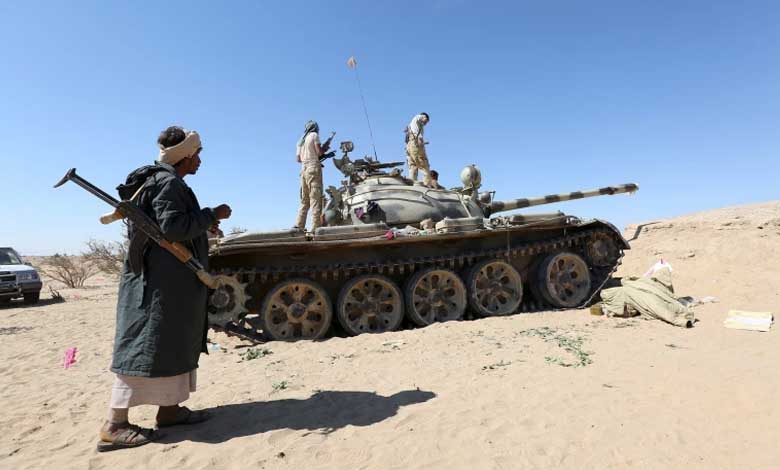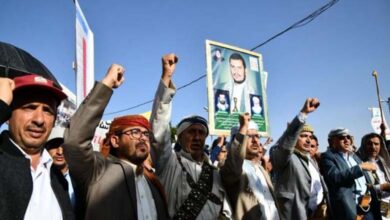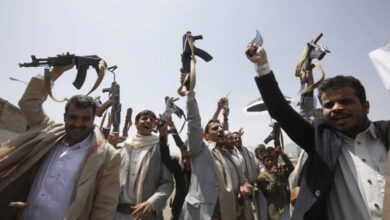Escalation of Yemen’s Marib clashes

The Iran-backed Houthi militias in Yemen keep ignoring UN and international community appeals to cease their attack against the governorate of Marib, while more than a million immigrants demanded refuge from continuing violence in the war-ravaged country. The Houthis intensified recruitment, deployment and attacks against the oil-rich governorate instead stopping the assault campaign against Marib.
Although the UN Security Council publishing a statement appealing for immediate military de-escalation in the northern governorate, the terrorist militants augmented the number of troops deployed to Marib’s western and northwestern fronts, in what field sources informed Asharq Al-Awsat.
The flying of more than 24,000 people
Furthermore, Yemen’s internationally recognized government stated that the management unit operating internally displaced people (IDP) camps in Marib registered the fleeing of more than 24,000 people.
It also said in a statement that the recent wave of escalating fighting in Marib displaced over 24,000 people during the period from Feb. 6 to April 16 this year, indicating that recently displaced people are suffering from hard living conditions, like absence of shelter, food, potable water and medical supplies. On its part, the UN refugee agency alerted that tens of thousands of Yemenis are being obliged to flee Marib.
Wounds or deaths of civilians in Marib
Besides, the UNHCR spokesperson Aikaterini Kitidi said: The fighting is increasingly impacting areas in and around Marib city, where large numbers of people already displaced by the ongoing conflict are sheltering.
She also said: In the first quarter of the year, at least 70 incidents of armed violence – shelling, crossfire and airstrikes – resulted in injuries or deaths of civilians in Marib, according to UNHCR’s protection partners.
According to Kitidi, there were 40 civilian fatalities, in March alone, including 13 in temporary settlements for displaced families, and she warned: This is the highest number in a month since 2018 in Marib.
More than 13,600 inhabitants in the region, since the escalation of struggling, have been obliged to leave from their homes. Kitidi indicated that the recent displacement is forming a heavy pressure on public services. She also revealed that families are obliged to share their shelters with up to three others.
Kitidi alerted again: One in four families have no access to toilets, showers, or hand washing facilities near their shelters. With a second wave of COVID-19 hitting Yemen, and only half of the country’s health facilities functioning, the lack of sanitary services is making the situation more terrible.












